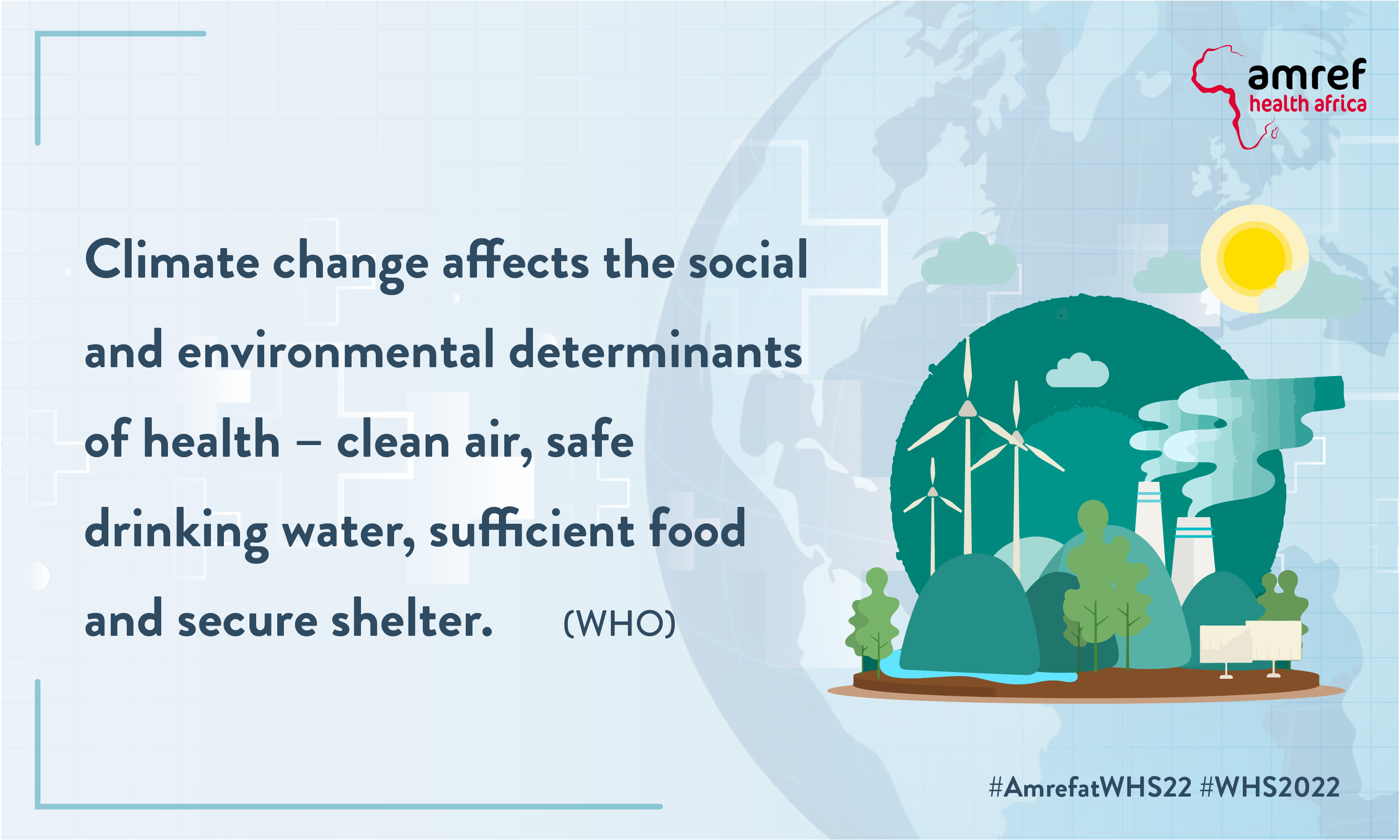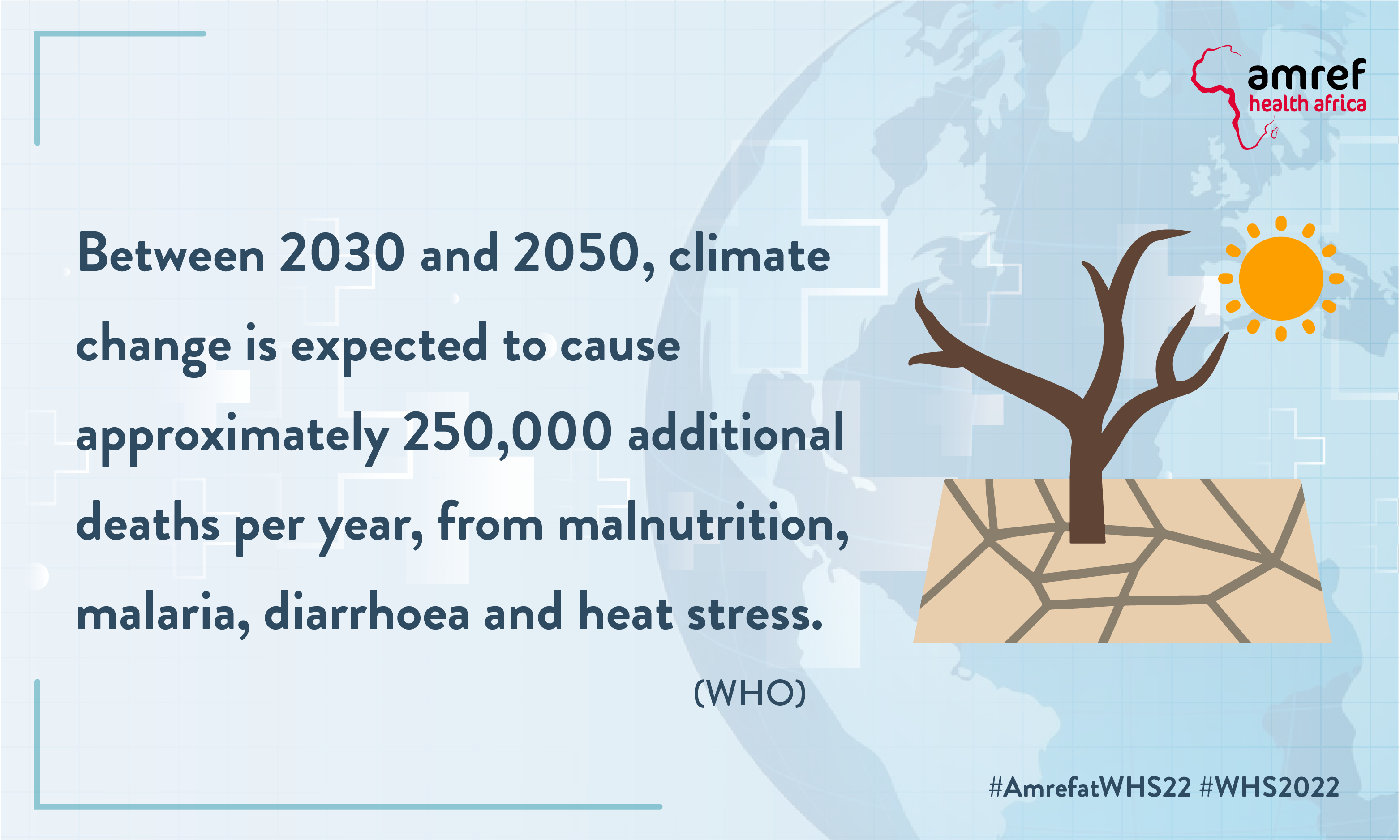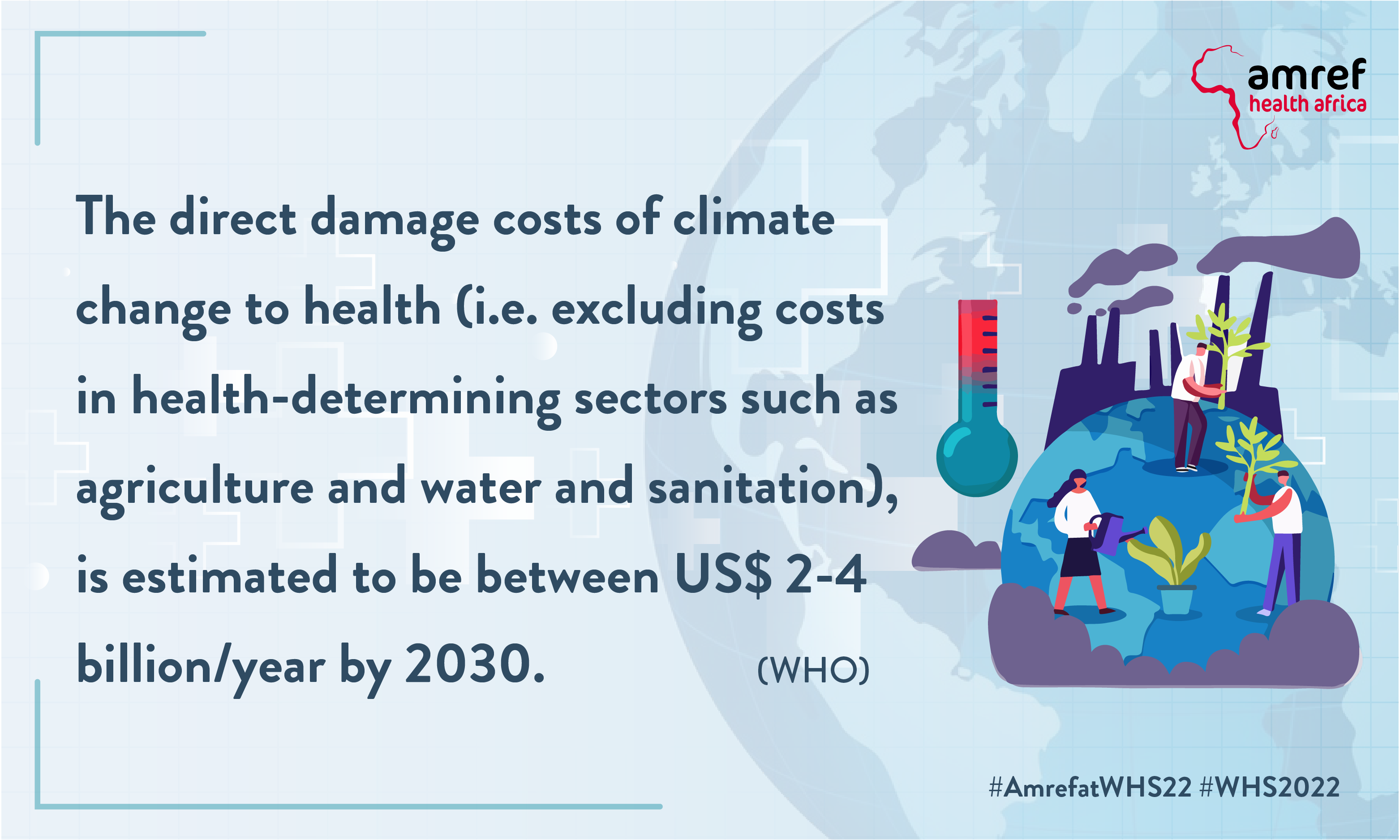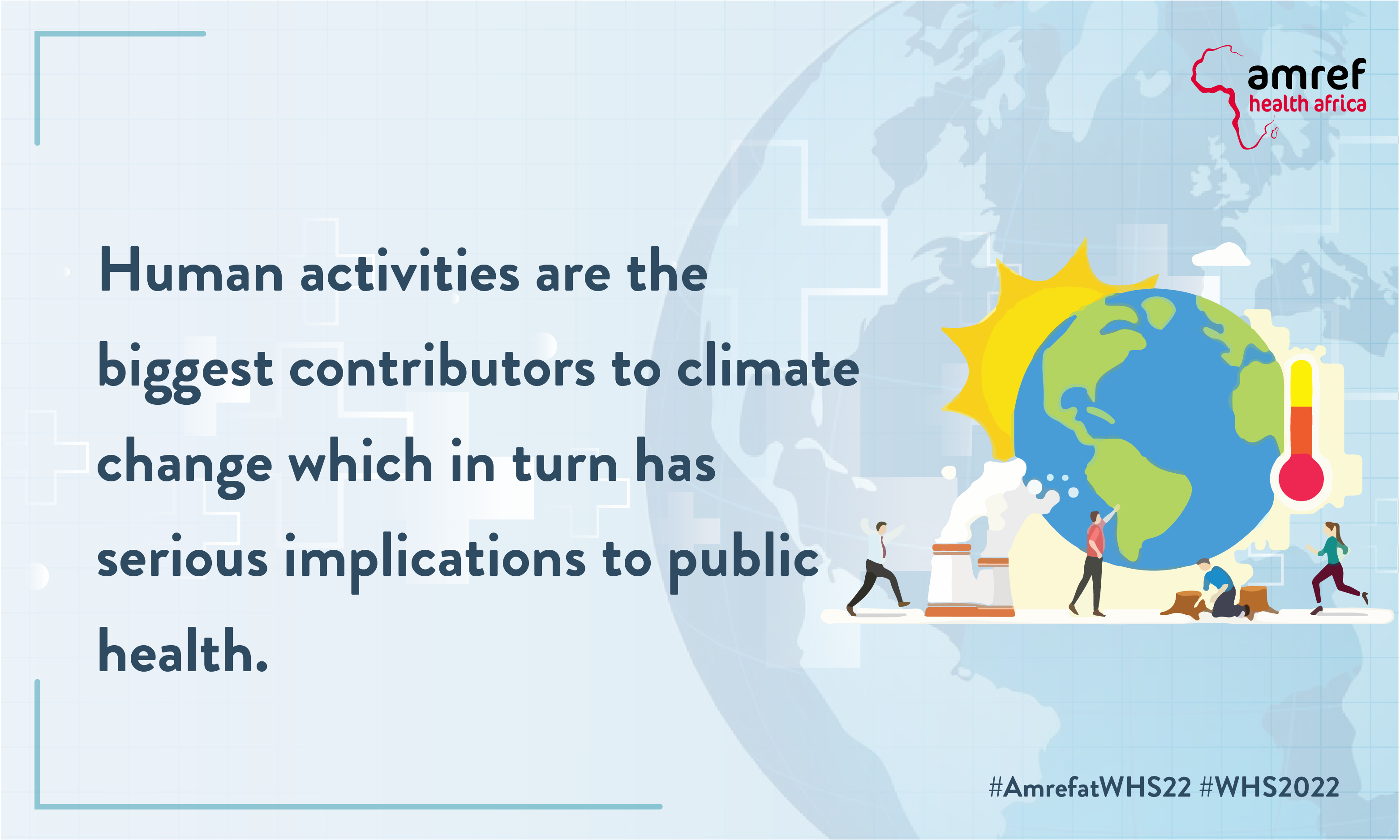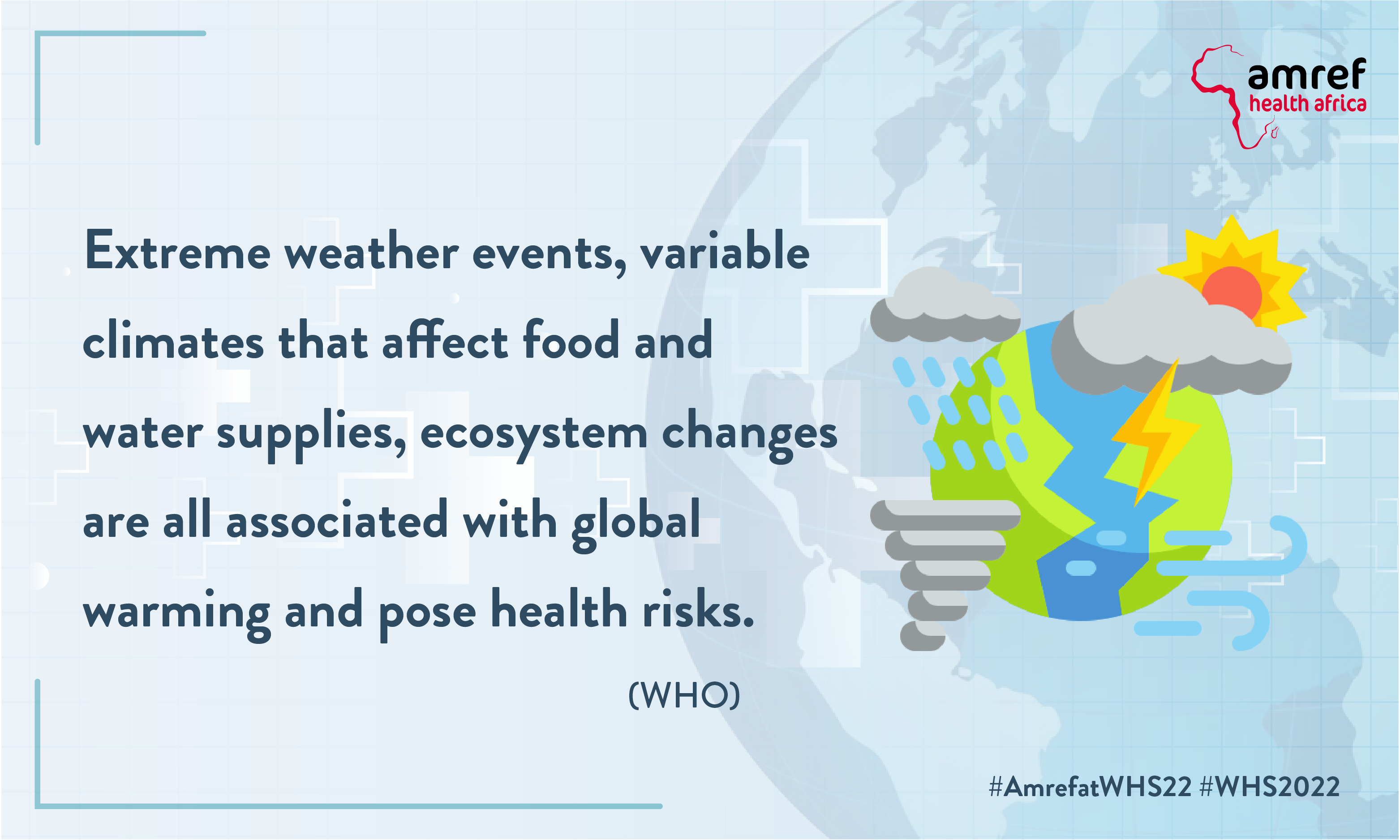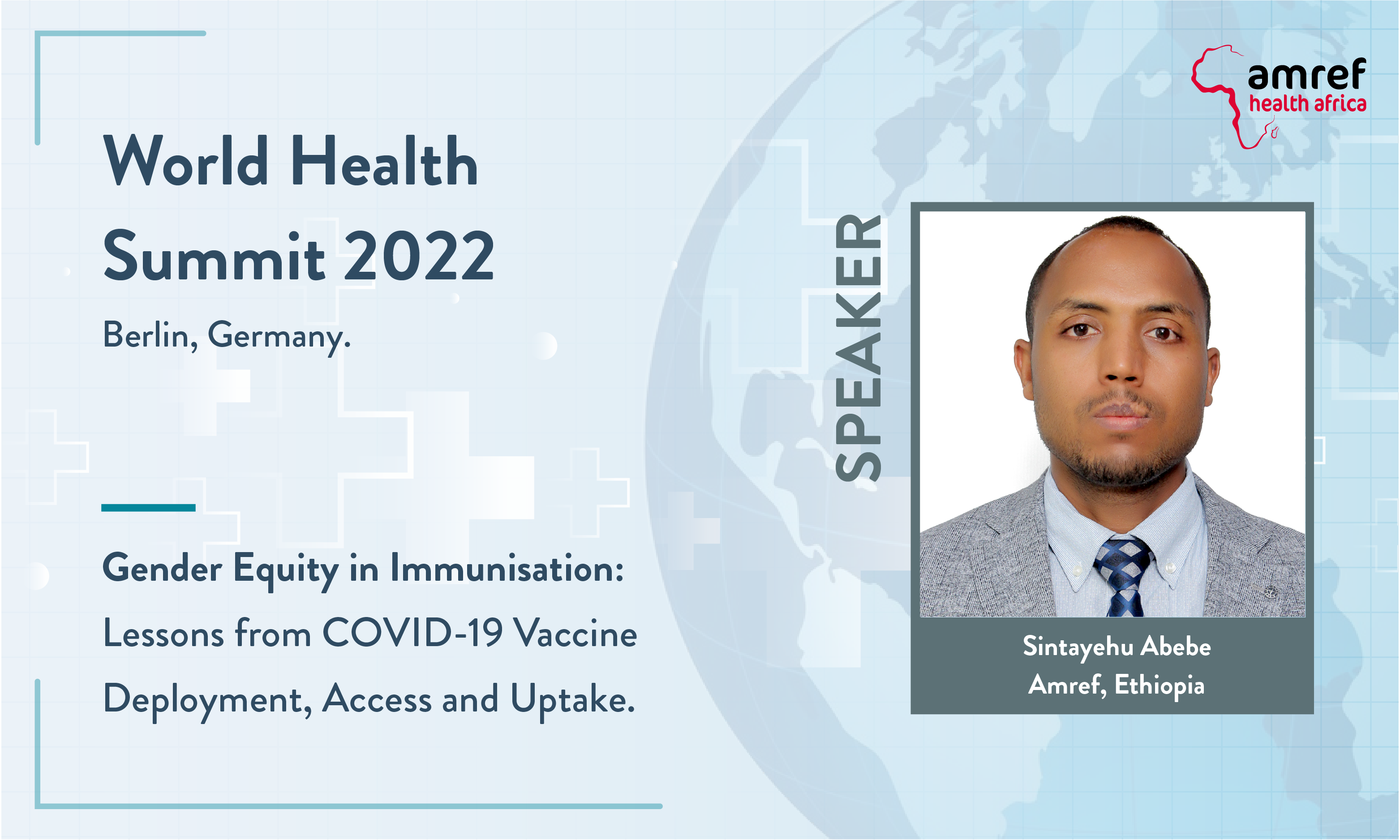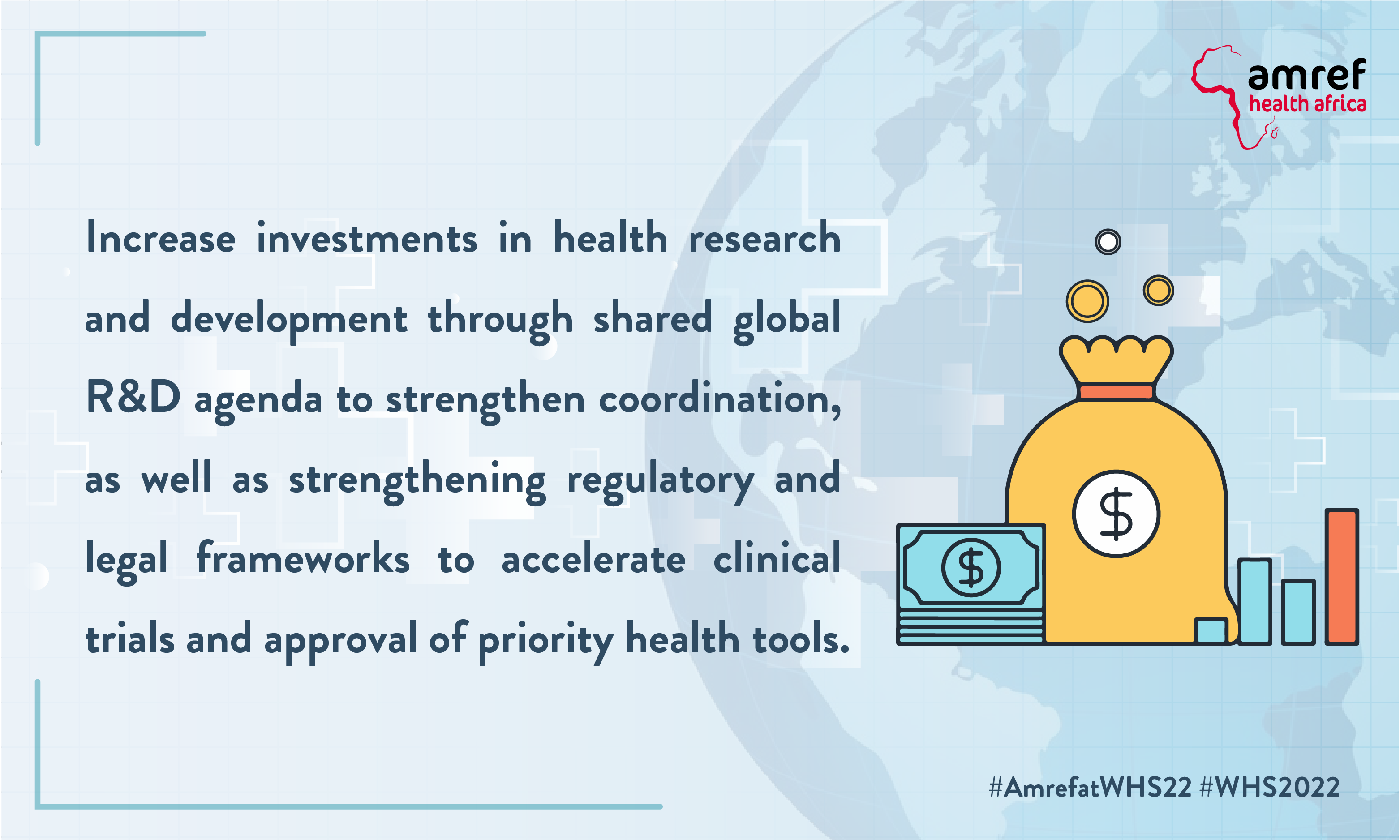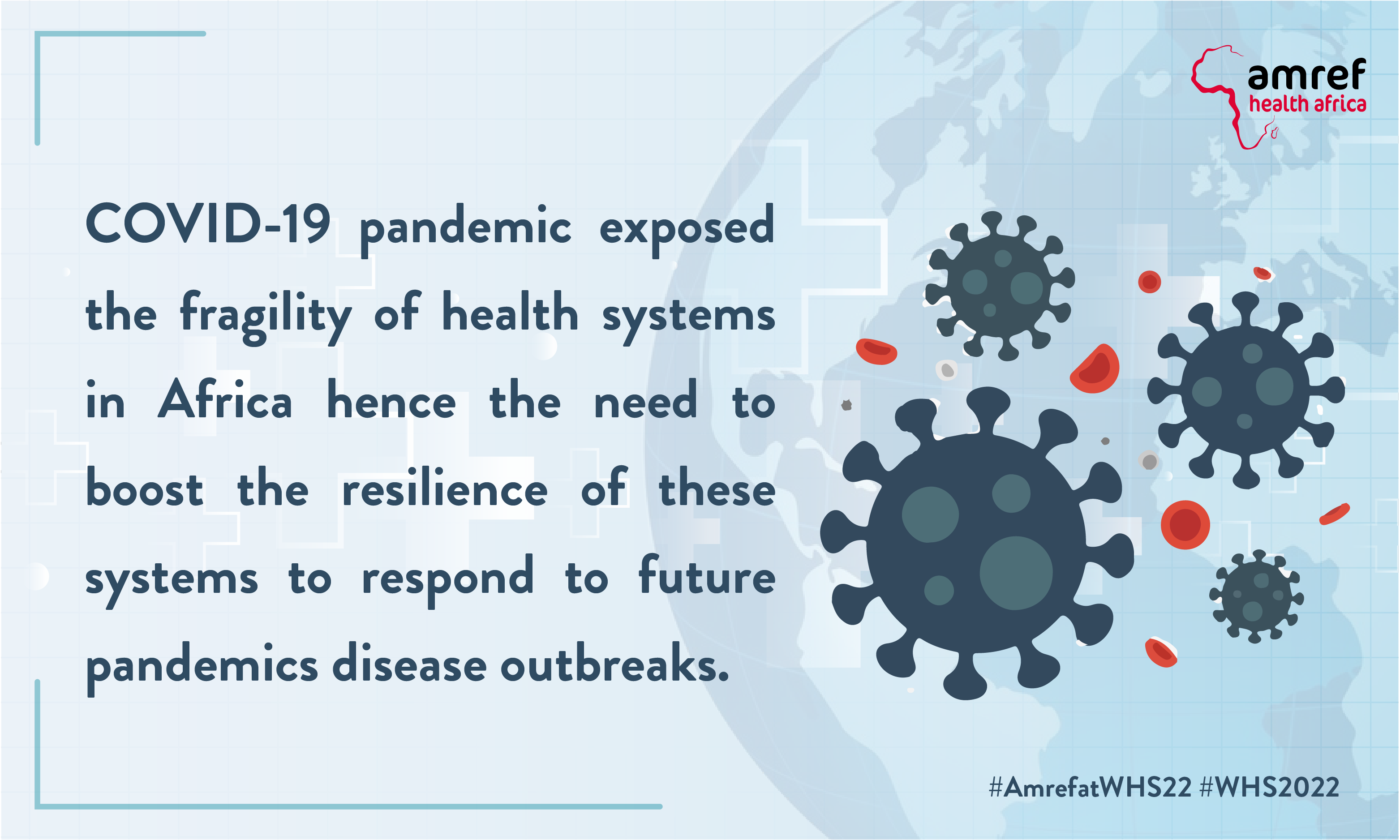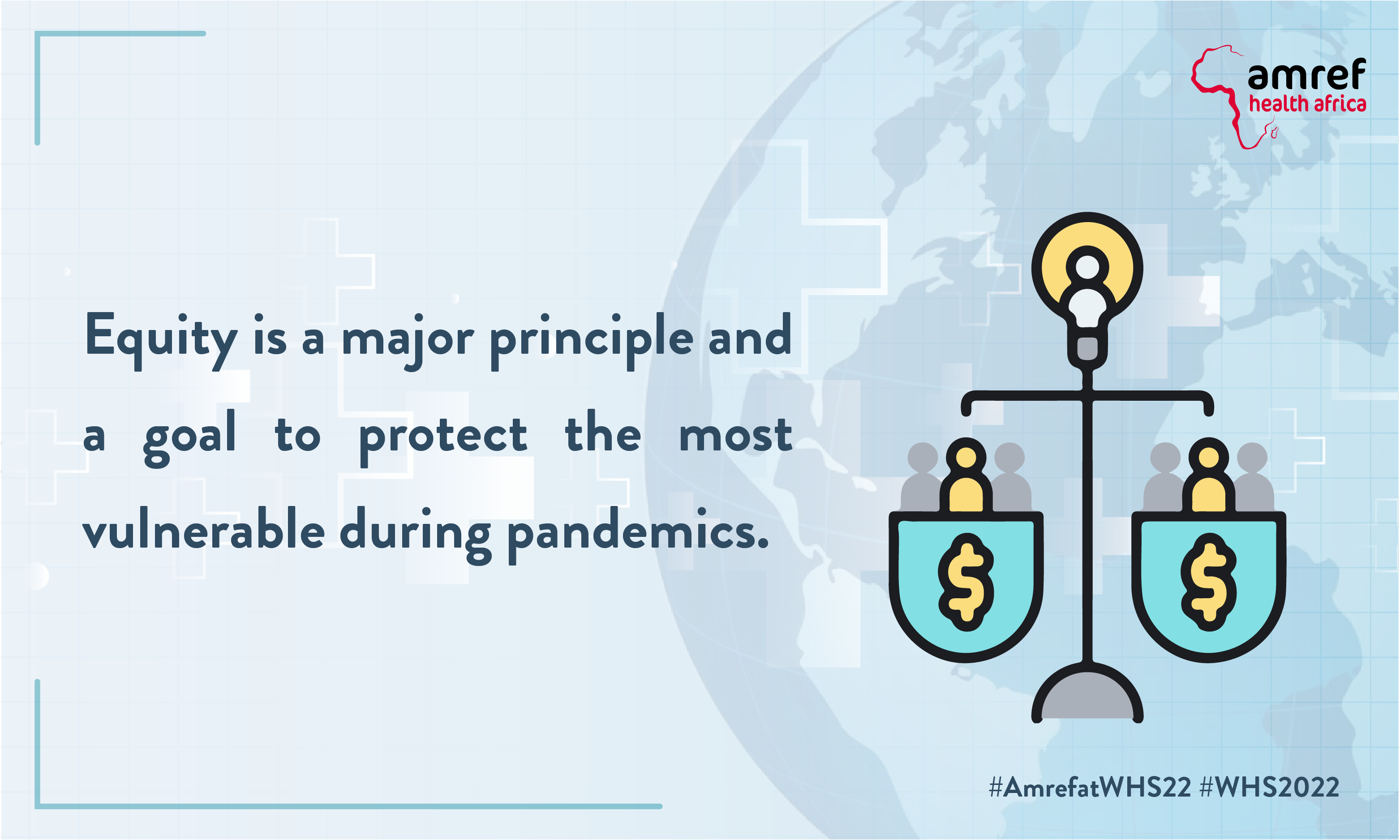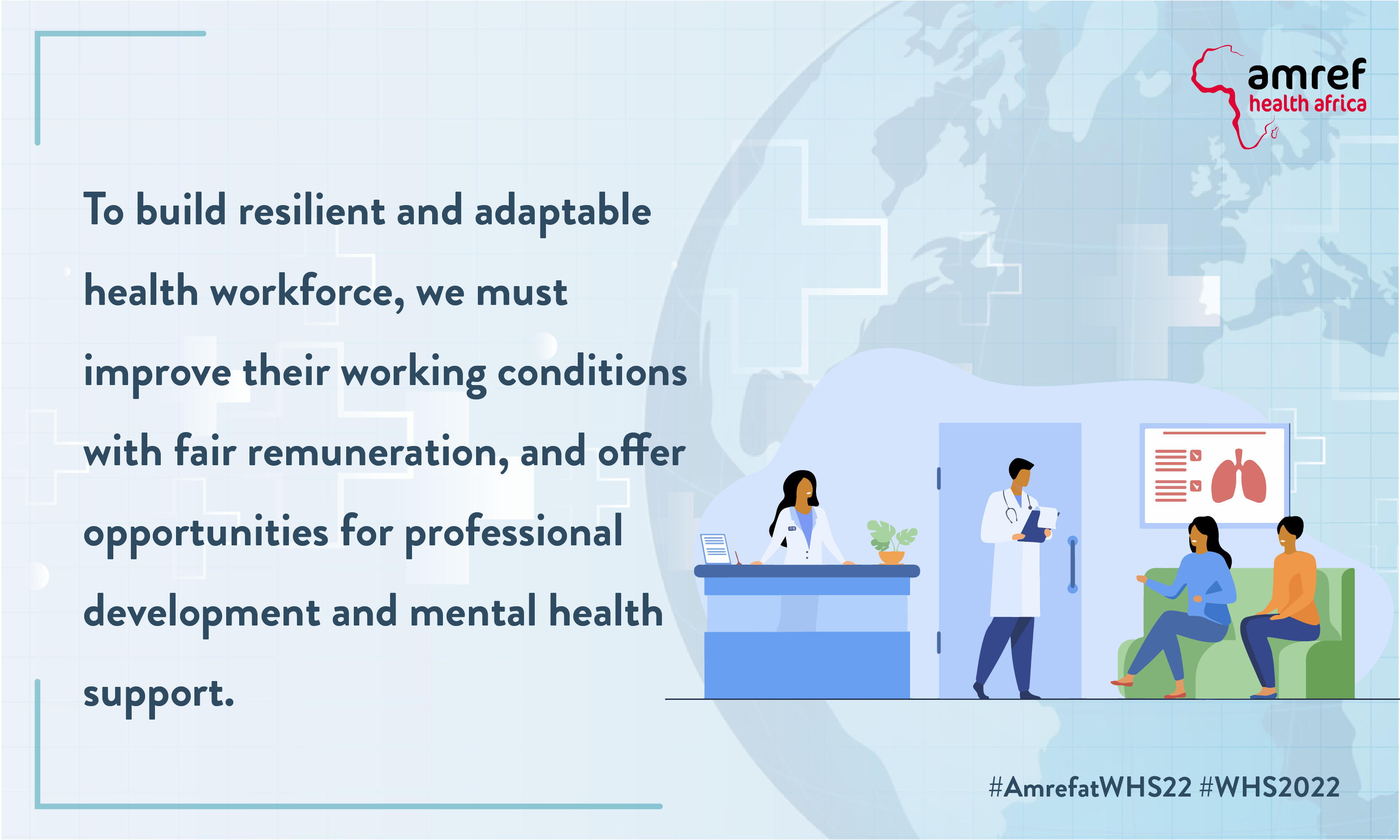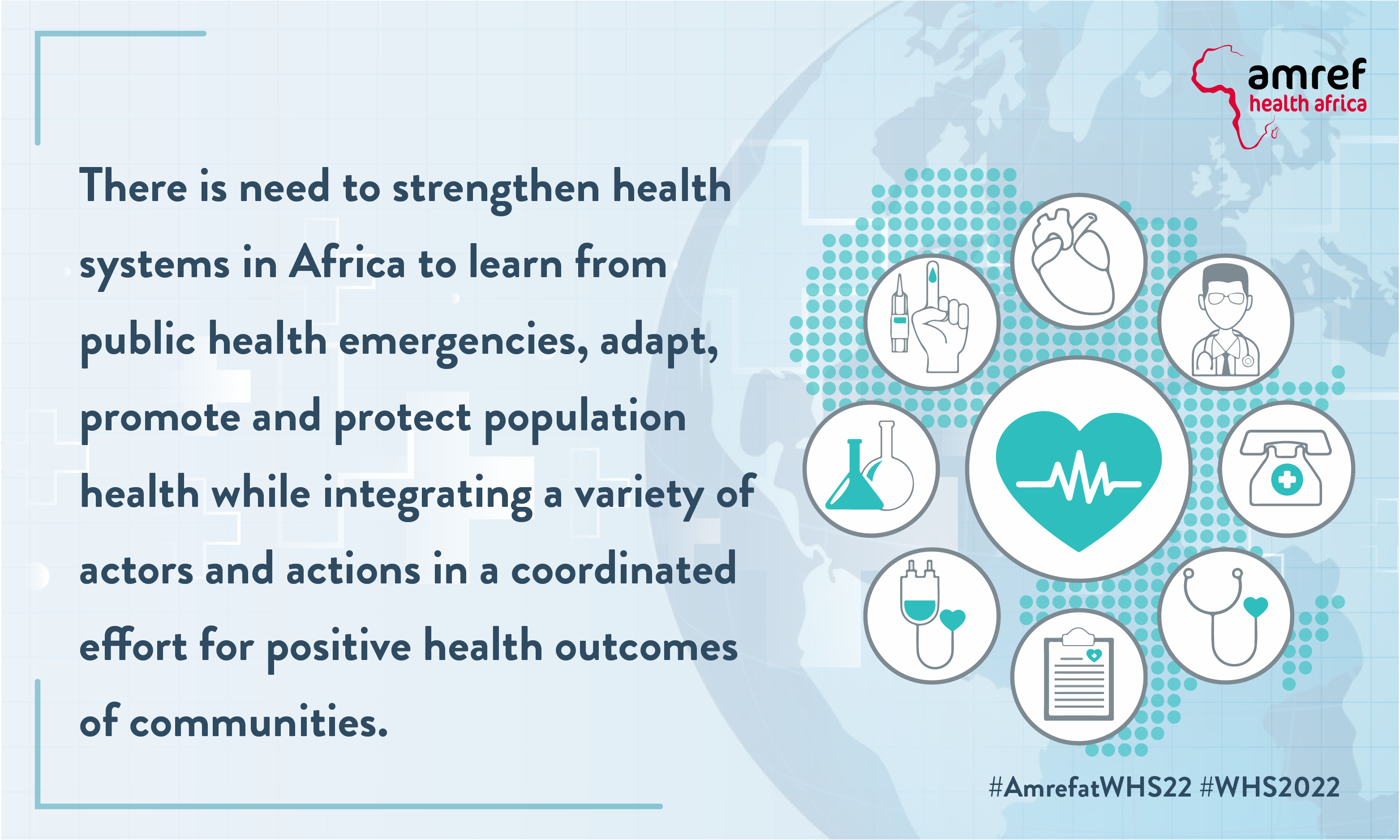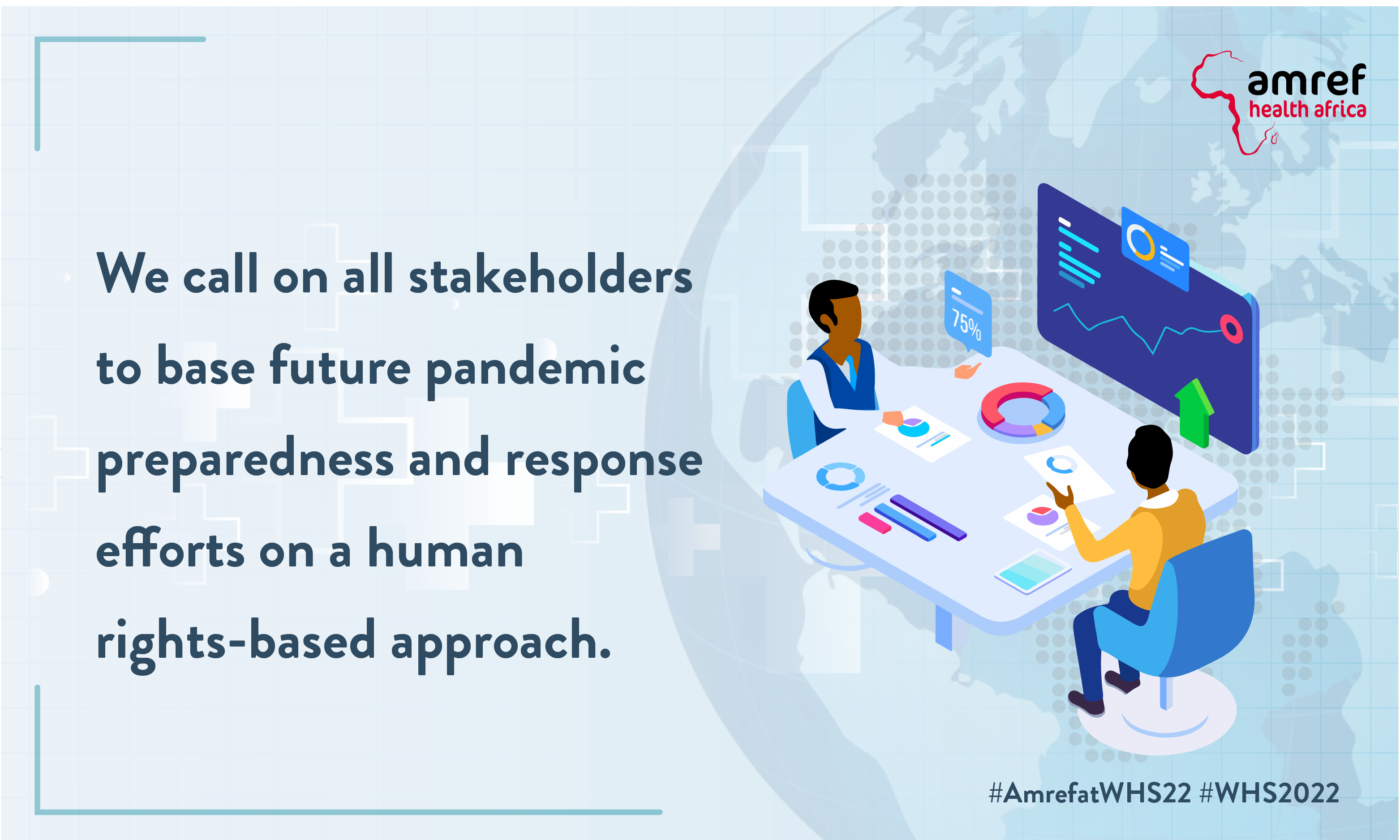World Health Summit, 2022
1st - 7th August, 2022
Theme: Making the Choice for Health
The World Health Summit 2022 – co-organised by the World Health Summit and World Health Organization (WHO) will take place between 16th and 18th October 2022 in Berlin, Germany. The Summit seeks to engage global health leaders and stakeholders from all sectors across the world to stimulate innovative approaches to health challenges worldwide, reaffirm the position of global health as a key political issue, foster health and well-being of all, and strengthen the international exchange of information.
The Summit’s topics of focus:
- Investment for Health and Well-Being
- Climate Change and Planetary Health
- Architecture for Pandemic Preparedness
- Digital Transformation for Health
- Food Systems and Health
- Health Systems Resilience and Equity
- Global Health for Peace
Share facts about #AmrefatWHS22
These communication tools are available to share and print during the World Health Summit, 2022. Feel free to display and/or distribute on social media. On Twitter please tag @Amref_Worldwide when posting graphics from this social media toolkit.
# Primary Hashtags
#AmrefatWHS22
# Secondary Hashtags
#WHS2022
Accounts to Follow
Quotes & Graphics
Click any image to preview & download (right click > Save as)
Videos
Play any video to preview, click the tweet button to share the video on Twitter.
Key Messages and Tweets
Climate change affects the social and environmental determinants of health – clean air, safe drinking water, sufficient food and secure shelter (WHO). #AmrefatWHS22 #WHS2022
Between 2030 and 2050, climate change is expected to cause approximately 250 000 additional deaths per year, from malnutrition, malaria, diarrhoea and heat stress (WHO). #AmrefatWHS22 #WHS2022
The direct damage costs of climate change to health (i.e. excluding costs in health-determining sectors such as agriculture and water and sanitation), is estimated to be between US$ 2-4 billion/year by 2030 (WHO). #AmrefatWHS22 #WHS2022
Areas with weak health infrastructure – mostly in low and middle income countries, have the least ability to cope without assistance to prepare and adequately respond to the effects of climate change. #AmrefatWHS22 #WHS2022
Reducing air pollution through better transport, food and energy-use choices can result in improved health. #AmrefatWHS22 #WHS2022
Human activities are the biggest contributors to climate change which in turn has serious implications to public health. #AmrefatWHS22 #WHS2022
Extreme weather events, variable climates that affect food and water supplies, ecosystem changes are all associated with global warming and pose health risks (WHO). #AmrefatWHS22 #WHS2022
Without proper mitigation and adaptation measures, climate change will continue to adversely affect various social and environmental determinants of health such as water, air and food. #AmrefatWHS22 #WHS2022
Climate change contributes to high temperatures that raise pollen and other aeroallergen levels that can trigger asthma, which affects around 300 million people. #AmrefatWHS22 #WHS2022
To continue improving human health and well-being now and in the future, we must broaden our view of progress to account for the critical role of Earth’s natural systems, which provide us with sustenance, shelter, and energy. #AmrefatWHS22 #WHS2022
Pollution from landscape fires and the combustion of fossil and solid fuels results in respiratory diseases and millions of deaths, mostly among young children. #AmrefatWHS22 #WHS2022
Extreme weather events related to global environmental change are a significant cause of illness and death. #AmrefatWHS22 #WHS2022
We call on governments to enact evidence-based policies that promote human health and prosperity while preserving the environment that allows humanity to thrive. #AmrefatWHS22 #WHS2022
We urge the Civil society organizations to develop a broad public movement for social change by pressuring decision makers/duty bearers to implement needed policies and sustainable practices that promote human health. #AmrefatWHS22 #WHS2022
Architecture for Pandemic Preparedness
We call on all stakeholders to base future pandemic preparedness and response efforts on a human rights-based approach. #AmrefatWHS22 #WHS2022
We encourage political leadership to strengthen health systems to mitigate health emergencies through multi-stakeholder and multi-sectoral engagements at all stages of policy development. #AmrefatWHS22 #WHS2022
We call on global health partners to practice a holistic definition of health equity and the right to health in future pandemic preparedness and response plans to guarantee equitable access to priority health products such as vaccines, diagnostics and therapeutics. #AmrefatWHS22 #WHS2022
Absence of engagement from local communities and civil societies undermines equitable governance that represents all perspectives. The community voices play a critical role and must be included in any meaningful pandemic preparedness efforts. #AmrefatWHS22 #WHS2022
Embrace equity, with no one left behind in pandemic preparedness efforts. #AmrefatWHS22 #WHS2022
Equity is a major principle and a goal to protect the most vulnerable during pandemics. #AmrefatWHS22 #WHS2022
There is need to strengthen health systems in Africa to learn from public health emergencies, adapt, promote and protect population health while integrating a variety of actors and actions in a coordinated effort for positive health outcomes of communities. #AmrefatWHS22 #WHS2022
To build resilient and adaptable health workforce, we must improve their working conditions with fair remuneration, and offer opportunities for professional development and mental health support. #AmrefatWHS22 #WHS2022
Women make up the majority of the health workforce in most countries, therefore, gender dynamics must be considered in building a resilient health workforce to pandemics. #AmrefatWHS22 #WHS2022
Community health workers are the bridge between communities and health systems, but are only 3% of the world’s health manpower. #AmrefatWHS22 #WHS2022
COVID-19 pandemic exposed the fragility of health systems in Africa hence the need to boost the resilience of these systems to respond to future pandemics disease outbreaks. #AmrefatWHS22 #WHS2022

